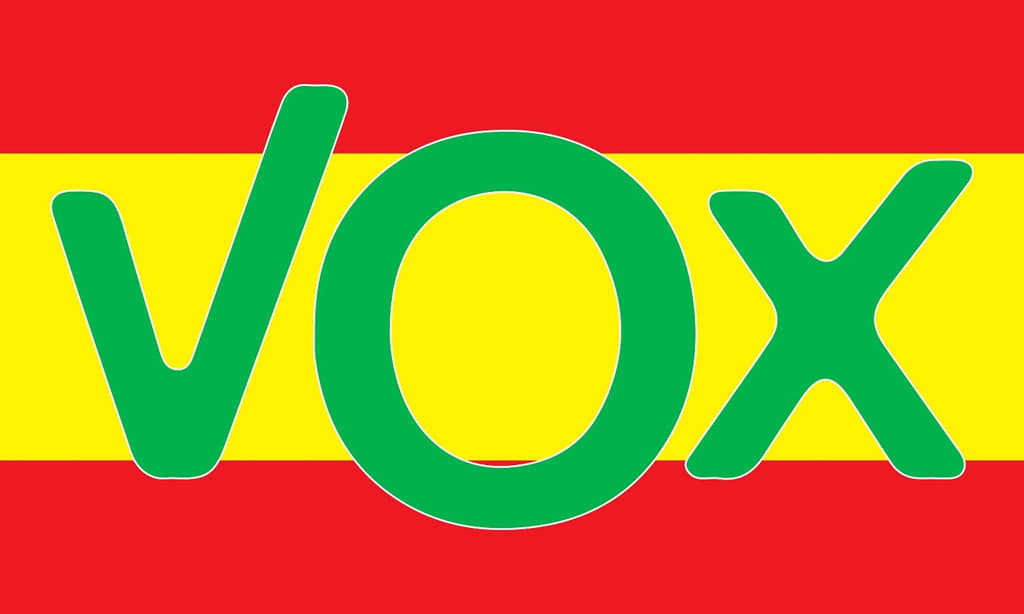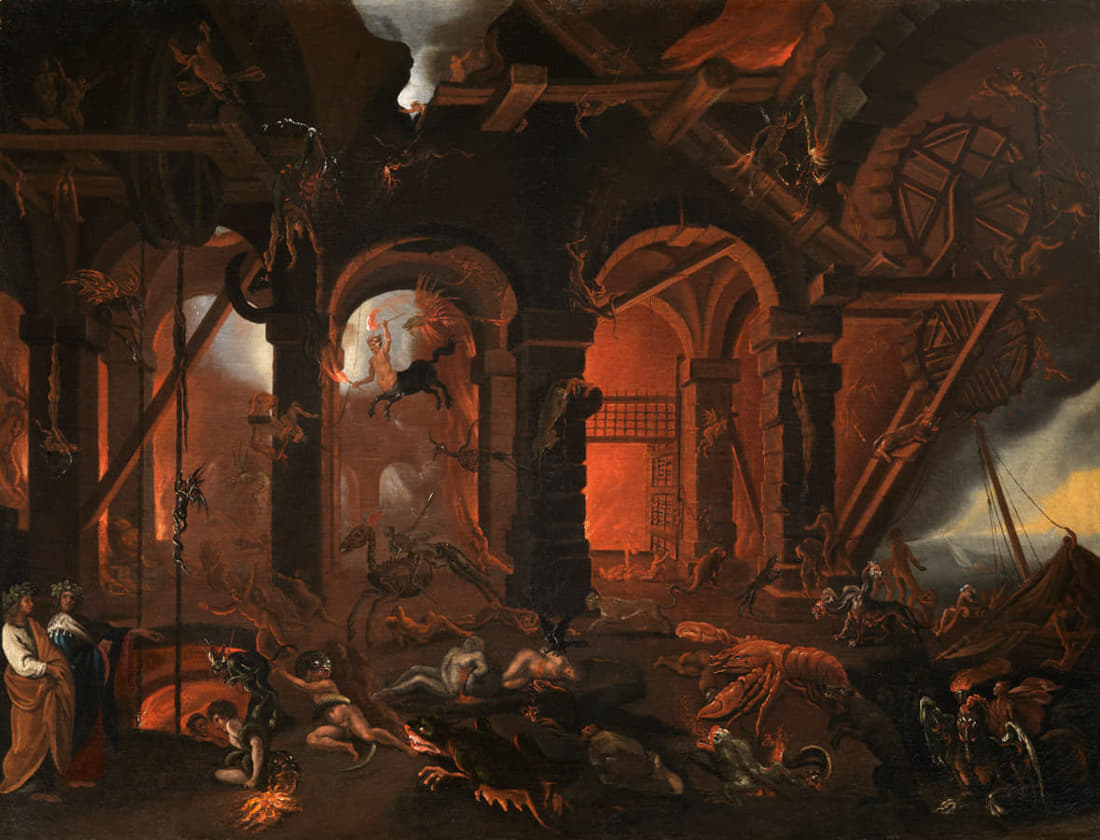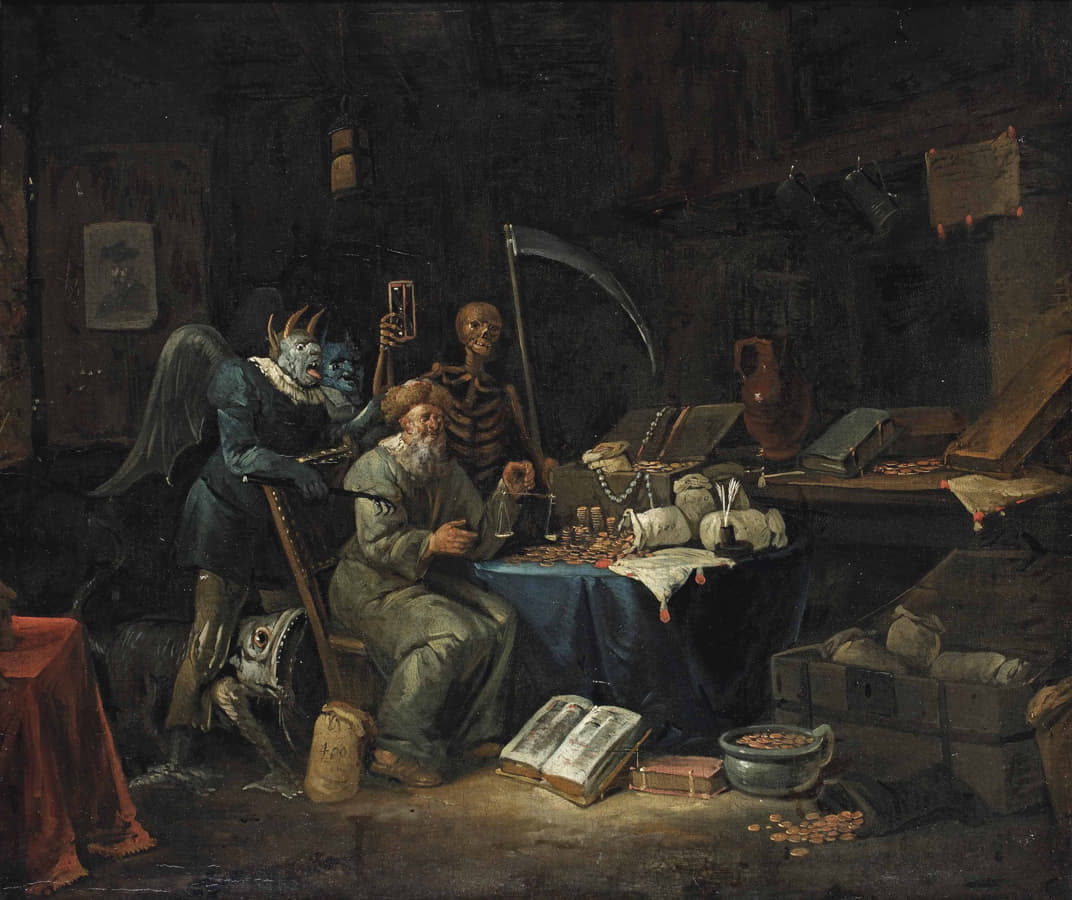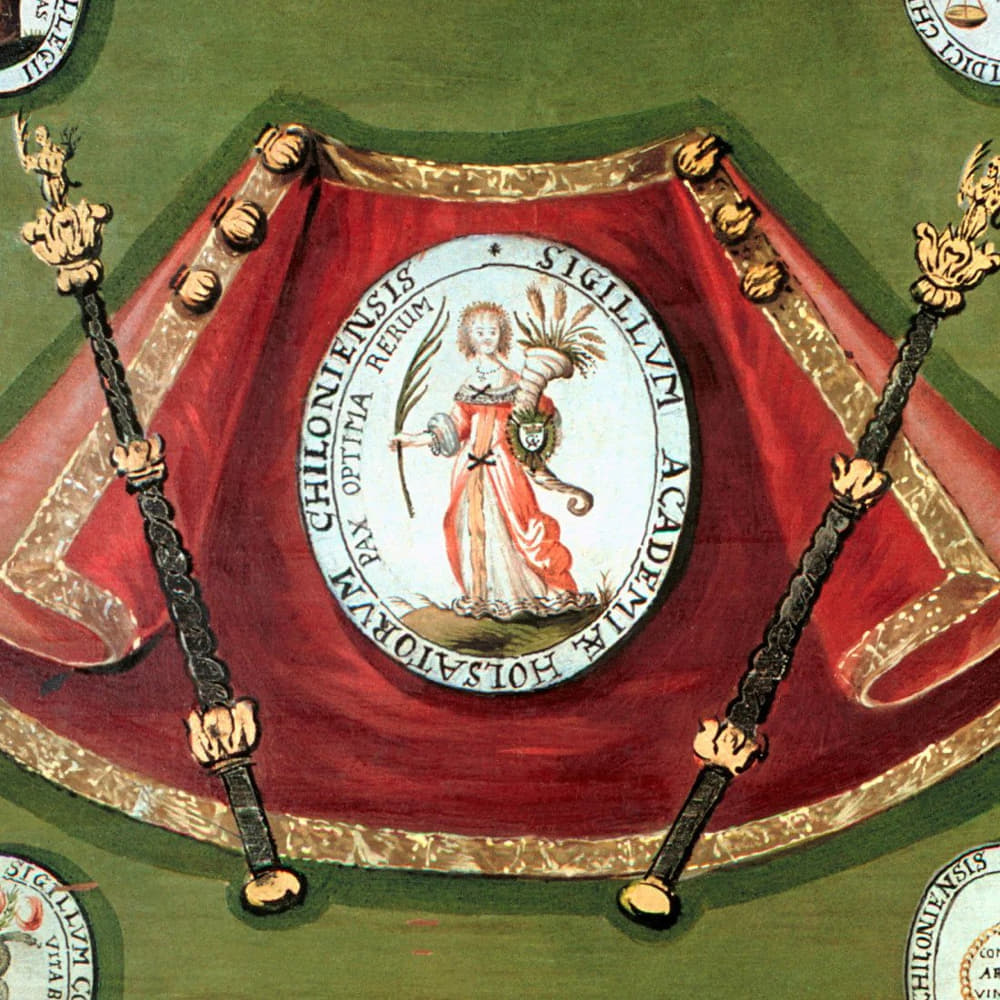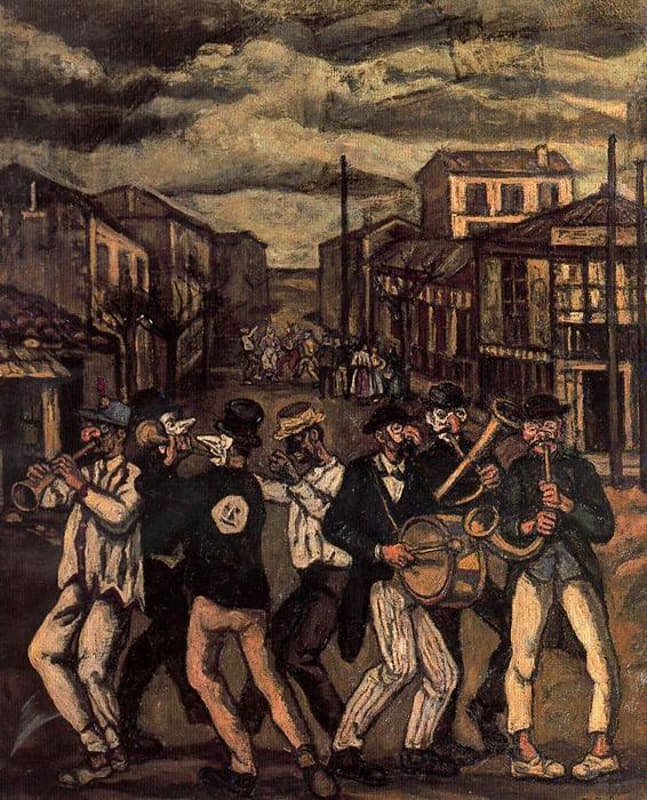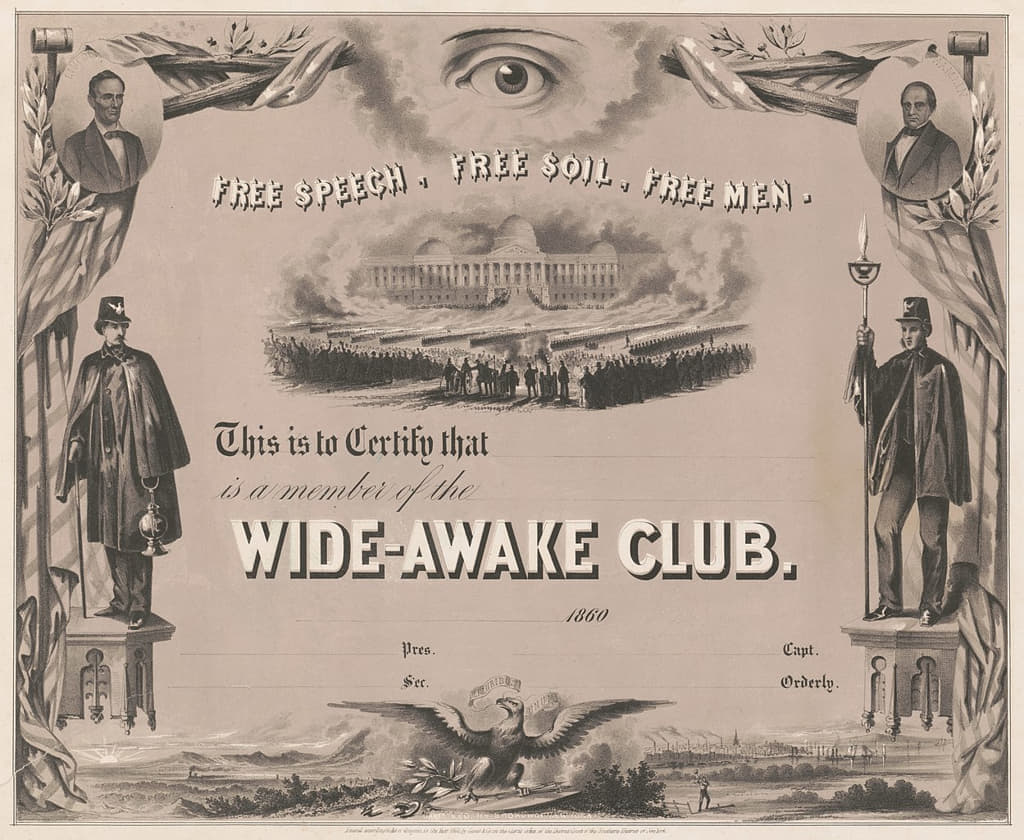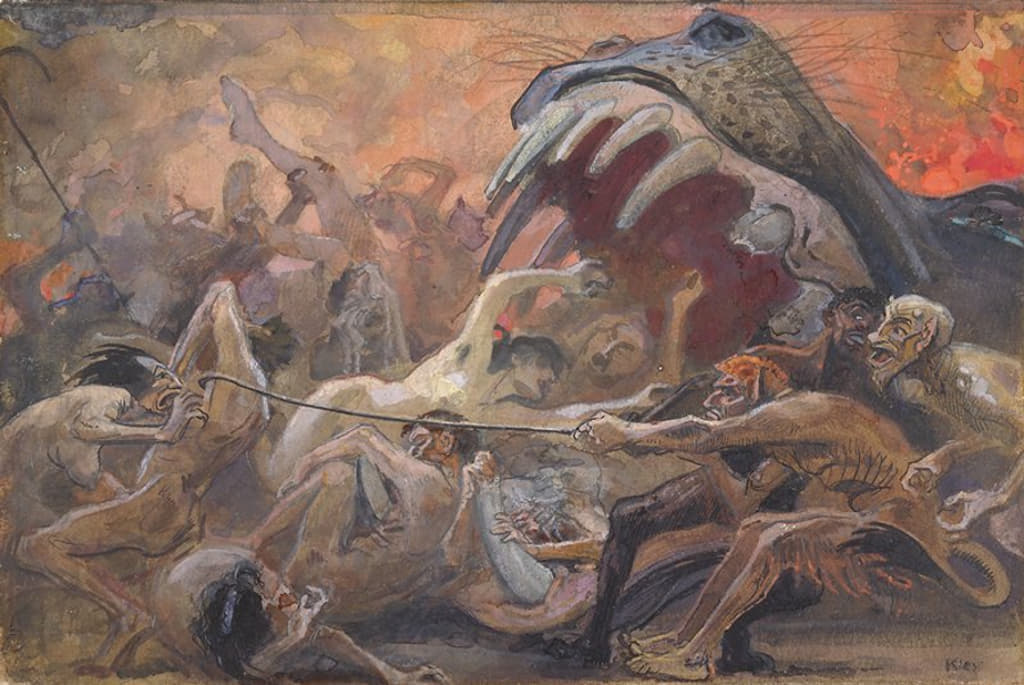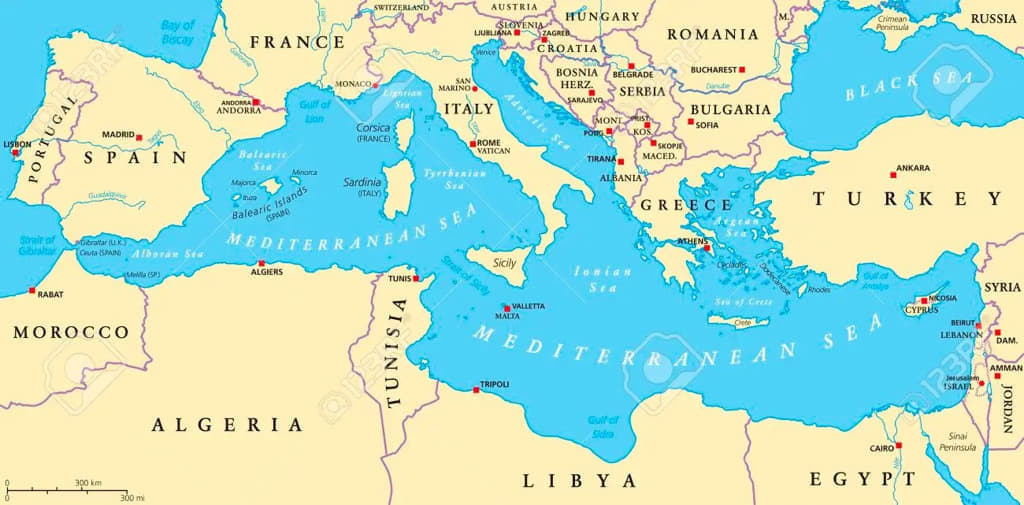Higher education has transitioned from a focus on affirmative action (AA) to a focus on Diversity, Equity, and Inclusion (DEI). How did this come about and what does it mean?
In the minds of their advocates, both AA and DEI are aspirational public policies focused on rectifying “underrepresentation” in the workforce of groups historically subject to inequalities in education and in the workforce. The former policy (AA) was initiated in 1965 and focused on improving equality of access (opportunity). It was subject to lengthy and controversial legal litigation over the use of quotas. By 2014, the U.S. Supreme Court held that “States may choose to prohibit the consideration of racial preferences in governmental decisions.” (DEI) is a later version and continuation of (AA). It arose from several sources including Higher Education and Immigration Law. It is seemingly focused on training of current employees in the workplace, but job applicants are required to subscribe and committed to achieving some version of equality of outcome.
The following account traces the long and circuitous route by which these policies came about. My account of this transition has three interrelated elements: the intellectual origin, the institutional context or evolution of higher education in America, and finally the larger political context. It is important to keep in mind that these controversial policies originated within and were welcomed by the academy, and these policies remain aspirational in the sense that they have no firm legal standing either in legislation or in the U.S. Supreme Court. My contention is that (AA) and (DEI) seek to replace the American Dream of a meritocracy with the Nightmare of egalitarianism.
Part I: Intellectual Origin
The modern context of egalitarianism originated with the success of Newtonian physics and its ability not only to explain and predict natural phenomena but to give us control over them. As Bacon and especially Descartes expressed it, it helped to make us the “masters and possessors of nature.”
Inspired by Newton, the French philosophes developed the idea of the social sciences. Specifically, they sought not only to explain and to predict social phenomena but to gain control over the social world. They proposed to pursue a social technology as a reflection of their Enlightenment Project. Such mastery was not only intended to achieve power but to bring about a social utopia.
(Isaiah Berlin characterizes the Project as follows: “…there were certain beliefs that were more or less common to the entire party of progress and civilization, and this is what makes it proper to speak of it as a single movement. These were, in effect, the conviction that the world, or nature, was a single whole, subject to a single set of laws, in principle discoverable by the intelligence of man; that the laws which governed inanimate nature were in principle the same as those which governed plants, animals and sentient beings; that man was capable of improvement; that there existed certain objectively recognizable human goals which all men, rightly so described, sought after, namely, happiness, knowledge, justice, liberty, and what was somewhat vaguely described but well understood as virtue; that these goals were common to all men as such, were not unattainable, nor incompatible, and that human misery, vice and folly were mainly due to ignorance either of what these goals consisted in or of the means of attaining them—ignorance due in turn to insufficient knowledge of the laws of nature… Consequently, the discovery of general laws that governed human behaviour, their clear and logical integration into scientific systems—of psychology, sociology, economics, political science and the like (though they did not use these names)—and the determination of their proper place in the great corpus of knowledge that covered all discoverable facts, would, by replacing the chaotic amalgam of guesswork, tradition, superstition, prejudice, dogma, fantasy and ‘interested error’ that hitherto did service as human knowledge and human wisdom (and of which by far the chief protector and instigator was the church), create a new, sane, rational, happy, just and self-perpetuating human society, which, having arrived at the peak of attainable perfection, would preserve itself against all hostile influences, save perhaps those of nature” (The Magus of the North, pp. 27-28).
Thus, the intellectual origins lie specifically in the French version of the Enlightenment Project. The Enlightenment Project was the attempt to define, explain, and control the human predicament through science and technology. This project originated among the French philosophes during the eighteenth century, among whom the most influential were Diderot, d’Alembert, La Mettrie, Condillac, Helvetius, d’Holbach, Turgot, and Condorcet. The philosophes were inspired by Bacon’s vision of the liberating power of science, Hobbes’ materialism, Newton’s physics, and Locke’s empiricist epistemology. The Project was epitomized in the nineteenth century by Comte and in the twentieth century by positivism. Denying the Christian concept of sin but still choosing to play God, these philosophes initiated the modern hubristic search for a secular utopia. What the Enlightenment project did was to change our idea of what knowledge is and what it is for.
The legacy of the French Enlightenment persisted throughout the nineteenth century in the works of Comte and Marx. Voegelin maintains that this is a form of Gnosticism, the Christian heretical attempt to achieve heaven on earth. “In the Gnostic speculation of scientism this particular variant reached its extreme when the positivist perfector of science replaced the era of Christ by the era of Comte. Scientism has remained to this day one of the strongest Gnostic movements in Western Society; and the immanentist pride in science is so strong that even the special sciences have each left a distinguishable sediment in the variants of salvation through physics, economics, sociology, biology, and psychology” (Eric Voegelin, The New Science of Politics, p. 127).
Egalitarianism is based upon a False Analogy to Physical Sciences
Our first claim is that affirmative action and DEI are policies based on the contention that there are such things as social sciences (Social studies, or the attempt to study and to understand the human/social world is not committed to the assumption that understanding means prediction and control. Nobel laureate Hayek’s understanding of economics and the market economy explicitly precludes prediction and control)—and specifically social technology able to explain, predict, and control social phenomena. The agents of this policy are deeply embedded in the social science programs of the modern university.
As we shall see, the most influential variants of this policy are Marxist in origin. Karl Marx believed not only that he had found an explanation of the social world but that he could predict its future evolution and identified the working class as the agents of reform through violent revolution. All of Marx’s predictions turned out to be false, so Marxist theory had to be revised. (It is worth noting in this context the modification introduced by Lenin, namely “colonialism,” the exploitation of non-western countries for their raw materials and low cost of labor. This alleged “exploitation” indirectly helped workers in the developed world to enjoy a higher standard of living and therefore not revolt. The same kind of argument can be read back into the domestic economy). The important relevant revision was provided by Antonio Gramsci in his doctrine of the “long march” through the institutions, specifically a revolutionary party needed the working-class to develop organic intellectuals who articulated an alternative hegemonic ideology critical of the status quo. Gramsci maintained that the agent of change was not the working class but the class of intellectuals and that the latter would bring about a peaceful revolution through the gradual take over of the major institutions in society like the university.
A. Hidden Structure Fallacy
Two features of “social” science allegedly analogous to physical science are worth noting. Modern physics does not explain phenomena (e.g. color) by reference to what is directly observable. On the contrary, modern physical science explains what is observable by reference to an initially hidden substructure, not visible to the naked eye (e.g. microbes, molecules, quarks, etc.). Subsequent experimentation gives us access to this initially hidden substructure by means of sophisticated equipment.
In an attempt to replicate this feature of physical science, the alleged “social” sciences explain the surface by reference to an initially hidden substructure (Marxist economics, Freud’s ego, id, etc., choices made behind Rawls’ “veil of ignorance”). So, today, for example, we are told that there is such a thing as “institutional racism.” However, there is a disconnect here. Instead of a hidden substructure that later gets verified or observed, the social sciences present a cornucopia of rival theories with no way to choose among them (libertarian, liberal, socialist, Marxist, Feminist, Critical Theory. Etc.).
To make matters worse, if one social scientist disagrees with another both can dismiss the other by claiming that the rival is a victim of a hidden bias. There is thus an infinite regress of hidden structures: your account, my account, your account of why my account is wrong because it reflects a hidden structure, my account of the hidden structure that explains why you cannot overcome your account (e.g. why “white” people who have not suffered “discrimination” cannot understand “black” people but “black” people can somehow understand and explain “white” people; likewise, “white” people can understand that “black” people suffer from the mental disorder of racial paranoia, etc.). This not only brings civil discourse to an end but it also gives enormous rhetorical advantages or power over the debate. The only social technology produced to date is the power to control debate.
B. No Replication by other Scientists
There is one final twist to the argument. A number of philosophers of science (e.g. Kuhn, Feyerabend, even Wittgenstein) have pointed out, rightly, that a theory in physical science is deemed “true” or in some sense viable if the theory meets the criteria (tests) agreed upon by the community of physical scientists. In short, intellectual acceptability depends upon a prior professional social consensus. Even Hayek pointed out that physical science rests upon assumptions that science cannot establish. Armed with this insight (anticipated by Vico in the 18th century and even to be found in Gramsci), social scientists contend that agreement amongst the community of “social” scientists is sufficient to establish the validity of a hidden structure account about the social world.
The foregoing analogy does not work. To begin with, physical scientists do not merely have conversations but engage in replicable experiments that do identify something “out there” independent of us. Moreover, the physical sciences have allowed us to extend human life, conquer diseases, engage in space exploration, etc. whereas, the “social” technologists to date have wrecked economies, engaged in needless wars, promoted social unrest, and provoked destabilizing mass migrations.
C. Concepts are not Things
In the “social” sciences, we meet only concepts and not things. Microbes and molecules are real; “systemic racism” remains a linguistic expression. There is also the question of who are the authoritative members of the community of social sciences (e.g. tenured members of the Harvard sociology department?). This may begin to explain why the contemporary university seeks to silence dissent and to discredit if not prevent certain kinds of research. Worse yet, the purveyors of this view need to appeal to a grand social consensus outside of their disciplines in order to identify their specific disciplines. Either they deny, for political reasons, that a valid social consensus exists (NO GRAND NARRATIVE) or they invoke an infinite regress. In practice, what this amounts to is that you only speak with others who already agree with you and shun, dismiss, or silence those who do not.
D. IAT Test: An Example of Unreliable Pseudo-Science
Let me give an example of pseudo-social-science. The implicit-association test (IAT) is intended to detect subconscious associations between mental representations of objects (concepts) in memory. Its best-known application is the assessment of implicit stereotypes such as associations between racial categories and stereotypes about members of those groups, e.g., associations involving racial groups, gender, sexuality, age, and predictions of the test taker. The IAT was introduced in 1998 and has been used as an assessment in implicit bias trainings (e.g. in diversity training) designed to reduce unconscious bias and discriminatory behavior.
IAT is the subject of significant debate regarding its validity, reliability, and usefulness in assessing implicit bias. Arkes and Tetlock offer “three objections to the inferential leap from the comparative RT (Reaction Time) of different associations to the attribution of implicit prejudice: (a) The data may reflect shared cultural stereotypes rather than personal animus, (b) the affective negativity attributed to participants may be due to cognitions and emotions that are not necessarily prejudiced, and (c) the patterns of judgment deemed to be indicative of prejudice pass tests deemed to be diagnostic of rational behavior.” (In press: H.R. Arkes, “The Rationality, Interpretation, and Overselling of Tests of Implicit Cognition,” in J.A. Krosnick, T.H. Stark, & A.L. Scott, eds., The Cambridge Handbook of Implicit Bias and Racism (Chapter 11, pp. 319-330). Cambridge, England: Cambridge University Press, 2023).
Part II. Institutional Context: Evolution of Higher Education in the U.S.
Historically the modern American university emerged in the 19th century from a variety of sources: religious affiliation, local communities, and private benefactors. From the beginning the university consisted of factions with competing paradigms. The oldest paradigm, the Ivory Tower so to speak, originated in the small liberal arts college with a religious (usually Puritan) affiliation and famously romanticized by Newman. The purpose of liberal education was to preserve, critique, and to transmit our cultural inheritance. In seeking to subordinate itself to the outside world, the university would only compromise itself and become an instrument for commercial or political exploitation.
A teacher is one who initiates a student into a cultural inheritance. The inheritance only comes alive when exhibited in the living embodiment of an instructor. The teacher exhibits academic virtues by consistently and coherently organizing intellectual judgments and inviting the learner to share in that process. Teaching was successful when students learned how to construct a self-understanding inclusive of the inheritance, a particular way of ordering or appropriating the inheritance, and to do so in a way that leads to the acquisition of an intellectual personality of their own.
A second paradigm is the German research model of the university with its emphasis on the disinterested pursuit of knowledge, the graduate school and the training of professionals. In this model, knowledge cannot be in the service of special interest groups because knowledge knows no political boundaries. Although non-political, the spectacular success of this model in science and technology eventually encouraged government subvention.
The third paradigm is utilitarian, wherein the university is seen as an institution for solving various and sundry social problems. In this model, the university exists as a means to social ends defined externally to the university itself (e.g. an A&M).
Looked at from our contemporary perspective, it is now clear that Newman’s moral model of the university has evaporated or has been marginalized; the research model has been corrupted and coopted; the notion of the college graduate as a civil servant has evolved into the notion of a special class which aims to run society. It is the politicized utilitarian model that has triumphed.
At first glance it is clear that institutions that were supposed to be the locus of higher education have become entwined with and encompass an enormous range of social, economic, and cultural activities. In the process, they have become big businesses with vested interests. In attempting to encompass all of these activities, institutions of higher education have abandoned learning. In so doing, such institutions have evolved into fraudulent enterprises. This is not to say that everything that occurs within institutions of higher education is fraudulent; nor is it to say that this outcome was planned or even foreseeable. It is to say that institutions of higher education have evolved, and in the course of that evolution factors internal to and external to the institution, intellectual and non-intellectual, have contributed to the rise of a Tower of Babel, meaning that the experts can no longer communicate with each other and have no clear common purpose. Symptomatic of this problem is a lack of consensus on the meaning of concepts like “learning,” “higher education,” “university;” no one seems to know what “teaching” is as opposed to “instructing” or how to evaluate it; no one seems to know the difference between “research” and “scholarship.” We have, in short, lost all sense of purpose. The fraud consists in maintaining that all of the activities that occur within present institutions of higher education are legitimate, consistent with each other and capable of forming a coherent whole under the rubric of the pious rhetoric that appears in mission statements and commencement addresses.
Although seemingly serving these external interests, universities have become a home for the adversary culture, for all those groups that are hostile to the very activities the university seeks to encompass. What are we to make of this contradiction? Schumpeter has observed that most modern intellectuals (including clergy and media people) are generally at odds with the representatives of the business community even though academics are dependent upon commerce for their own existence and comfort. Part of this opposition is reflected in the firm commitment of the academic world to socialism even when it has been repeatedly shown that centrally planned economies woefully and of necessity underperform free market economies. Schumpeter attributes this opposition to jealously on the part of academics who resent the fact that the leadership of modern culture emerges from the business community instead of the academy. Here we have a clue as to what has happened, namely, something was transformed in the evolution of the university from a medieval to a modern institution.
Higher education is the initiation into an inheritance, and it was from the beginning institutionalized in universities. As medieval institutions, universities saw themselves as the elite defining institutions of the culture, as superior to and independent of the state, as playing both a Socratic role with respect to the culture as a whole and a potentially adversarial role with respect to individual institutions such as the state. The source of our difficulties lies in the conflict between these roles, the conflict between the Socratic initiation into the inheritance and the adversarial relation between a self-defined elitist institution and the rest of the culture.
As Western Civilization evolved the content of the inheritance evolved. Unfortunately, certain historically contingent aspects of the medieval world became mistakenly identified with the content. Given the late medieval context, academics believed in a collective, holistic, and hierarchical common good, a good to which the good of individuals was subordinate, a good that encompassed both the church and the state. Intellectuals, in short, see themselves as the high priests of the collective good The university as agent of the church not only articulated that good but enlisted the subordinate state to promote the conditions necessary to achieve that good.
The modern world is not the medieval world. There are two elements in the medieval view that are at odds with modern culture. The most distinctive institutions of modern culture are individual rights, the rule of law, a republican form of government, and a market economy. First, modern culture is post-Reformation and therefore does not believe in a holistic common good. There is, instead, the individual good rooted, at least initially, in the relationship of individuals to God. There is no holistic common good over which academics may preside, only a cultural inheritance. Universities, however, may still perform the functions of providing a context for learning and maintaining a Socratic role vis-a-vis the rest of the culture. Second, there is no one institution, and therefore no one group, that authoritatively articulates the cultural inheritance. Without a collective good, intellectuals in the modern world are merely trained communicators who might be spokespersons for a particular interest group. Schumpeter’s observations and diagnosis are not only accurate, but we can explain the situation further by reference to the medieval origins of Institutions of Higher Education. The now mythological holistic common good is the metaphysical phantom behind central planning.
The Enlightenment Project allowed academics to reassert the cultural hegemony of the university. College graduates were no longer mere civil servants but definers and implementers of the good. The good was understood as the medieval cosmic order now accessed by physical and social science. Since media people are trained by the academics, they too become advocates of the project. It should come as no surprise that the press is no longer Socratic but adversarial.
How did this happen?
The internal transformation begins with how the Puritan Ivory Tower underwent a remarkable secularization. Inspired by 19th-century Transcendentalists like Emerson and Thoreau (environmentalist, author of “Civil Disobedience,” and whose support of John Brown turned abolitionism into a civil religion), these “heretical” Puritans (now a sect of Presbyterians) surrendered the concept of “original sin” and replaced it with a moral universalism in which it was assumed that all people were naturally good and corrupted only by their environment. As Santayana allegedly remarked, “Thoreau was impervious to the evidence of evil.” What began as WASP Hegemony evolved first into Wilsonian (President of Princeton University became President of the U.S.) Progressivism that assimilated all Americans in the 1920s but by the 1960s had evolved into liberal-egalitarian idealism applicable to the entire multicultural world. This view is expressed in a speech given by Harvard historian Arthur Schlesinger to the American Historical Association (1942) titled “What Then is The American, This New Man?” Schlesinger declared that: “The American character … is bottomed upon the profound conviction that nothing in the world is beyond its power to accomplish.” In his 1989 essay, The End of History, Francis Fukuyama argued that American liberal democracy and modern technology had produced the final form of political association. Henceforth, all societies would, in time, inevitably take on the form of liberal democracy.
What will probably strike some readers as an aside or a remarkable coincidence, worth noting is that the 16th century English theologian Richard Hooker’s critical portrait of Puritan methodology in his Ecclesiastical Polity aptly catches what has become today “Woke” methodology in higher education and its attendant “witch hunt.” Puritans exhibited a Millenarian vision of spiritual redemption through worldly reform; severe criticism of social evils and the conduct of the upper classes; they are virtue signalers; experience themselves as the elect and distinguish themselves from the damned; concentrate popular ill-will against the establishment; recommend a new form of government as the “sovereign remedy of all evils;” turn a blind eye to any part of our intellectual inheritance that is incompatible with their doctrine; anyone who uses tabooed instruments of critique will be socially boycotted and defamed; there is a special role for women: emotionally more accessible, tactically well placed to influence husbands, children, friends, more inclined to than men to serve as spies/”commissars” concerning the state of affections in their circle, and more liberal in financial aid; they are impermeable to argument and have their answers well drilled – beyond shaking by argument; sacred documents had to be carefully chosen and the interpretation standardized; propaganda is a form of political action not a search for truth; where they control the means of communication, all theoretical argument is prohibited (Voegelin, pp.135-144).
Going back to the medieval origin of universities focused on educating the clergy, the faculty had always viewed itself as the moral and intellectual elite. The Puritan roots of higher education in the U.S. always had as its aim the notion of the college graduate as part of a special class which aims to run society. Heretofore, it had been assumed that knowledge cannot be in the service of special interest groups because knowledge knows no political boundaries. In the 1960s, the secularization of Puritanism came to mean that colleges promoted a specific political agenda, namely liberal-egalitarian idealism associated with transcendentalism or humanism. That agenda emerged from the so-called “social” sciences.
The alleged “social” sciences, acting as a kind of “fifth column” starting in the 1960s, achieved intellectual hegemony over the entire university curriculum. The humanities were social-scientized under the aegis of “deconstruction” seeking the hidden structure meaning of texts so that Shakespeare, for example, was now read not as someone who had important insights into the human condition but perhaps as a racist or homophobe. Here is a typical itinerary that reflects a forced interdisciplinarity: the student registers in a philosophy department; instead of the Truth for which she was searching all that she is offered is tiresome analysis; bored, she changes disciplines and ends up writing a thesis entitled “The Phenomenology of Moby Dick” or “How Class Struggle is related to Paternalism.” Following all this, she will be hired in a department of literature, or social sciences, or psychology and will satisfy in turn the disappointed philosophical aspirations of a new generation.
“Deconstruction” became the origin of the view that there are multiple but no authoritative narratives or grand theory. (According to Lyotard’s The Postmodern Condition: A Report on Knowledge, the postmodern condition rejects universalizing theories. Lyotard argues that we have outgrown our needs for metanarratives that bring together social practices. Any narratives we tell to justify a single set of norms are inherently unjust. Little narratives have now become the appropriate way for explaining social transformations and political problems. This is easily translatable as a rejection of Huntington’s “creed” and the promotion of multiculturalism). By a not so strange coincidence with Rousseau’s elusive “general will,” the substitute for an authoritative narrative was whatever the majority, or those who spoke in the name of the majority, voted for or agreed to. As we shall see, this had important implications for immigration policy.
The American Historical Association (the national professional organization for academic historians), issued a statement supporting the removal of Confederate monuments from the public square because the 1861-1865 War was about slavery. American historians and legal scholars acting now in a post-modern idiom for whom the “realities of race and slavery” stain and color nearly all events in antebellum history, just as Marxists stained and confounded everything they touched from an obsession with class struggle, will ignore or dismiss constitutional claims about the right of secession and by an act of will confer “factual” status on the official doctrine that the War was about slavery. And since most academic historians subscribe to that thesis, it is presented as something determined by “experts.”
In philosophy, John Rawls (winner of the Ralph Waldo Emerson Award) was a barometer of the direction of academic thinking. In his youth, Rawls was influenced by Marx’s essay On the Jewish Question, criticizing the idea that inequality in ability justifies the distribution of wealth in society. G. A. Cohen, used Rawls’s writings to inaugurate Analytical Marxism in the 1980s, and the same can be said of Habermas and the Frankfort School. In the Law of Peoples (1999) Rawls embraces a form of multiculturalism)—eschewed and replaced even the historical account of our norms by articulating the method of “reflective equilibrium” to undercover the alleged “hidden” structure of our moral intuitions. Rawls’s theorized, in a series of articles written between 1957 and 1963 and a book in 1971, that justice meant “fairness” which really meant equal basic liberties, “fair” equality of opportunity, and facilitating the maximum benefit to the least advantaged members of society in any case where inequalities may occur.
(The qualification “fair” opens the Pandora’s box that leads ultimately from equality of opportunity to equality of result. See below on Hume’s discussion of “fair.” Notice as well the difference between a society which maximizes benefits for all and one which is focused on maximizing benefits for the least well off. The former defines itself in terms of its “most” successful while the latter defines itself in terms of its ‘least’ successful).
Rawls’ sympathizers and critics pointed out that he had not gone far enough. Even in a system of perfect equality of opportunity there would be some inequality of result. The children of super-achievers would have gained privileges that the children of others did not. Such inequality and the resulting resentment was, as Marxists argued, the root of all other social problems. It is at this point that cultural Marxists hijacked the liberal-egalitarian agenda in the academic world.
(Just as Hooker had in the sixteenth century exposed the logic of Puritan Gnosticism, David Hume had in the 18th century in the Enquiry Concerning Morals exposed the logic of inequality. First, there is no consensus on what is a fair distribution; second, you cannot in advance assign resources to who will make the best use of them because this is not something anyone can know in advance {refutes central planning}; third, if in the beginning you give everyone equal resources this will be followed by interactions that will lead to a new inequality of result; finally, all of this will require an all-powerful central authority to maintain the ongoing equality).
An important transition had occurred. Rather than demanding that Americans live up to their norms, it had now been revealed that those norms, the entire history behind them was inherently evil and exploitative. If so, then against that standard Western Civilization was a fraudulent form of exploitation. What followed was a scholarship of endless denigration of Western achievement. Not even the physical sciences could resist. Western physical science had, unbeknownst, all this time operated within a flawed set of moral foundations. Something, later, like Covid became a social/political/ideological problem and not a medical problem.
This intellectual voyage provided an opening for Frankfort School cultural Marxists like Marcuse. Rawls had to be supplemented by Dworkin who in turn gave way to critical race theory. Pre-law students usually majored in political science (subtly conceptualizing law into applied politics) and when they arrived at Law Schools were introduced to the U.S. Constitution as a document written by white males who had owned slaves. Social technologists turned law schools into preparing graduates to be federal bureaucrats, activist judges, and regulatory agents.
To recruit more like-minded faculty for Gramsci’s “Long March through the Institutions,” a succinct mission statement coined by Marxist student activist Rudi Dutschke in the 1960s, whole new disciplines of inequality grievance studies were introduced. John Ellis (2020), in his book, The Breakdown of Higher Education, shows how Antonio Gramsci inspired Marxists and Students for a Democratic Society, the latter publishing in 1962 the Port Huron Statement. In that document, Students for a Democratic Society “decided . . . their only choice was to “wrest control of the educational process from the administrative bureaucracy…(and) consciously build a base for their assault upon the loci of power” (Ellis, pp. 48-52). They went on to use universities to convert young people to their ideology. Radicals patiently built their numbers until they had achieved a 5-to-1 left-right faculty ratio by the turn of the century (2000). That dominance allowed radicals to control most new faculty appointments, and the left-right ratio accelerated dramatically, reaching about 12 to 1 by 2016. The affected institutions include law schools and business schools. The best discussion of Marxism in higher education is American Academia and the Survival of Marxist Ideas, by Dario Fernandez-Morera (1996).
Part III: Political Background
As we shall see the political context was both a cause and an effect of the growth of affirmative action and its transition to DEI.
The utilitarian conception of the university understood as serving an external political agenda was facilitated by federal funding. In an important sense, there is hardly any longer a totally private institution of higher learning. The external sociological origin of this triumph lies in the commercial exploitation of the university’s research resources, in the political appropriation of the university’s scientific research capacity commencing with the Cold War, and in the vast expansion of the number of people accepted into the institution during the 1960s. It’s always about the 1960s.
In the immediate post WWII period, both major political parties, Democrats and Republicans, shared different but overlapping narratives. Both supported what I shall call the “American Dream,” namely the view that through hard work and merit (talent) any American could become economically successful. It was always understood that a meritocracy meant inequality of result, but this was accepted on the grounds that all were then better off (“a rising tide raises all boats”). Republicans wanted to protect this Dream for those who already had achieved it and for their posterity; and Democrats wanted to extend it to those (unionized workers) who felt that they had been unfairly excluded.
Heretofore, Blacks, when allowed to vote, had, for historical reasons, supported the Republican Party going back to Lincoln and Reconstruction. All of that was about to change. The 1954 Brown v. the Board of Education decision by the Supreme Court outlawing segregated schooling and the 1964 Civil Rights Act protecting voting rights, among other things, convinced Black leaders that their path to the American Dream was paved by increasing the power of the Federal Government, the favored tactic of the Democratic Party. What Democrats discovered was that their power base was no longer with the working class but with groups who perceived themselves as previously excluded (i.e., “victims”). Post WWII economic growth had already lifted many members of the working class into a share of the American Dream, and this led to a steadily increasing movement away from the Democratic Party (e.g., “Reagan Democrats” in the 1980s and many Trump supporters in 2016). These changes did not go unnoticed by cultural Marxists who had already perceived that the great revolution would not be accomplished through the working class. In due course, the cultural Marxists would take control both of the Democratic Party and even the leadership of the Black community. By 1991, the NAACP had, according to Andrew Young, achieved its civil rights goals. But it was losing members, revenue, and influence, so a new direction had to be taken. Blacks formed an alliance with other groups who perceived themselves as victims.
Two other interrelated political phenomena are worth noting, namely multiculturalism and immigration. Prior to the 1960s, immigration rules favored Europeans from north-western Europe (U.K. and Scandinavia). In addition, immigrants had been encouraged/required to assimilate to the dominant culture. The dominant culture was, according to Huntington, Anglo-Protestant. The dominant culture encompassed a specific set of norms or “creed” (individual liberty, rule of law, equality before the law, limited government, and market economy).
Elsewhere, it has been argued that those norms, including the transition from an agricultural economy to an industrial and technological economy, had empowered Western Europeans, in general, to colonize (dominate) the globe, allowed Britain to create a global empire in the 19th century on which “the sun never sets,” enabled the U.S. to “win” the Cold War against the Marxist-Leninist Soviet Union, and ultimately become the world’s superpower. “English” is now the world’s universal second language (certainly the major language of commerce, politics, and academe). Assuming this to be the case, success within the U.S. (and economic success as a “developing” “country”) depended upon already possessing or mastering those cultural norms.
Within U.S. politics, Democrats characterized good government as democratization understood as majority rule; Republicans characterized it as limited government or a Republic with a Constitutional legal system that protected individual rights. Post WW II and in response to the Cold War, both major parties promoted decolonialization (self-rule) and democratization, as opposed to Soviet centralization of all power, in international affairs.
The counter-narrative, i.e. the cultural Marxist narrative, is that the success of north-western Europeans and their heirs (Anglo-American world) was the product of the denigration and exploitation of the “non-white” colonized world. The remedy was not revolution (original Soviet Marxist theory) but democratization and multi-culturalism. Multiculturalism is not just about the wide availability of ethnic restaurants but “is about the proper terms of the relationship between different cultural communities.” This is understood to mean that the standards by which the communities resolve their differences, “the principles of justice must not come from only one of the cultures but must come through an open and equal dialogue between them” (Parekh, p. 13).
This has two major immediate implications. Domestically, it means that politics is now about negotiation among different “cultural” groups wherein each group’s culture enjoys equal dignity and respect. The older notions of success and meritocracy through competition are to be discarded as remnants of bias. “Cultural appropriation” occurs when a member of a majority group assimilates a cultural element of a minority group without due regard for its original meaning and thereby implies the subordination and disrespect of the minority culture.
The Democratic Party embraced this view in 1964 with the Civil Rights Act and with the 1965 Immigration and Nationality Act. The latter act removed “de facto discrimination” against Southern and Eastern Europeans, Asians, Africans and other non-North-Western European groups.
“Discrimination” simply means making fine distinctions. This is usually a good thing. “Discrimination’ has taken on a largely negative connotation when associated with irrelevant or counterproductive criteria. Several waves of immigrants had been successfully integrated into the creed of Anglo-Protestant culture largely because of assimilation policies. It was now assumed by an ignorant public without any serious discussion or debate that anyone coming to America would fit in simply by osmosis. We were told that America was a “land of immigrants,” something that is impossible. You can only immigrate into a country that already has a culture; and the U.S. already had an Anglo-Protestant culture because of its English settlers. The original settlers were not immigrants but settlers. Of course, if one claims that the misnamed “Native American” tribes were a country, then the English settlers were just another immigrant group. What was overlooked was the deliberate intention of cultural Marxists to welcome those who might resist assimilation to the creed. It all depends on one’s “narrative.”
The Immigration Act of 1990 rescinded the provision discriminating against members of the LGBT+ community. It also introduced for the first time a “Diversity Immigrant Visa” to be determined by the Attorney General to rectify imbalances. “Diversity” has the clear meaning here of referring to cultures or countries. In essence, this transferred authority to deal with immigration issues from the judiciary to the unelected civil service (staffed largely by university trained attorneys). This Act also clarified but extended “family reunification” immigration visas to immediate family members. For immigration purposes, immediate family is defined as one’s spouse, parents, or unmarried children below age 21. Demographically this increases the percentage of the population that is not derived from north-west Europe.
With regard to immigration, it means that all cultures are to be equally respected (= given equal weight). Hence, there is to be no favoritism for north-west (i.e. “white”) Europeans. This reflects the replacement of what Huntington (2005) had called the “creed” by the norms of cultural Marxism (instead of transforming the earth you must repair the damage of climate change, instead of a free market economy you advocate a managed global economy where the difference between crony capitalism and socialism disappears, instead of limited national government you espouse unlimited leadership by the UN, instead of the rule of law you advocate rule through law, and finally, you are defined by membership in a group).
(As Michael Oakeshott put it, “The emergence of this disposition to be an individual is the preeminent event in modern European history… there were some people, by circumstance or by temperament, less ready than others to respond… the familiar anonymity of communal life was replaced by a personal identity which was burdensome… it bred envy, jealousy and resentment… (it developed) a new morality… not of ‘liberty’ and ‘self-determination,’ but of ‘equality’ and ‘solidarity’… not… the ‘love of others’ or ‘charity’ or… ‘benevolence’… but… the love of ‘the community’…(the anti-individual or mass man, i.e., those attracted to identity politics) remains an unmistakably derivative character… helpless, parasitic and able to survive only in opposition to individuality.” See also “Pathology of Identity Politics”).
The alarm bells were beginning to ring. As Schlesinger pointed out:
There remains however a crucial difference between the Western Tradition and the others. The crimes of the West have produced their own antidotes…to end slavery, to raise the status of women, to abolish torture, to combat racism, to defend freedom of inquiry and expression…that continent is also…the unique source—of those liberating ideas of individual liberty, political democracy, the rule of law,… These are European ideas, not Asian, nor African, nor Middle Eastern ideas, except by adoption.
From Affirmative Action to DEI
The undefined expression “affirmative action” began innocuously enough in executive orders issued by Presidents Kennedy and Johnson. It soon began to take on a variety of evolving meanings.
Definition 1 (open-search): Affirmative action consists of those policies designed to advertise all openings as widely as possible and to monitor appointments and promotions processes in order to insure that the process is open, nondiscriminatory, and promotes excellence. (As we shall shortly see, this was clearly the intention and extent of the original legislation).
Definition 2 (punitive): Affirmative action consists of any policy, private or public, ordered by the court to redress proven cases of individual discrimination. The remedy may involve a specific numerical objective, but the numerical objective is limited to a specific time and place.
Definition 3 (backward-compensation): Affirmative action covers any policy designed to redress alleged cases of discrimination against a group by placing members of the group in the positions they would have allegedly held if the alleged discrimination had not taken place. This is a contrary-to-fact conditional: it claims to identify what would happen if something else had not happened. (This was exactly what the original legislation was designed to prevent by adding 703 (h) and 703 (j)—see below).
Definition 4 (backward-compensation): Affirmative action covers any policy designed to redress alleged cases of discrimination against a group by placing members of the group in the positions they would have allegedly held if the alleged discrimination had not taken place. This is a contrary-to-fact conditional: it claims to identify what would happen if something else had not happened.
Definition 5 (forward-preferential): Affirmative action designates any policy in social planning, without any causal claim of what would have been, designed to produce a democratic and diverse society in which all power, resources, rewards, etc. will reflect the percentage of the population of the officially designated groups. Instead of equality of opportunity we shall endorse equality of result. The Hidden Agenda.
Legislative History
It is useful to cite the legislative record concerning these definitions. As then Senator Hubert H. Humphrey put it, “Title VII does not require an employer to achieve any sort of racial balance in his work force by giving preferential treatment to any individual or group.” Senator Harrison Williams noted that Title VII “specifically prohibits the Attorney General or any agency of the government, from requiring employment to be on the basis of racial or religious quotas. Under this provision an employer with only white employees could continue to have only the best qualified persons even if they were all white.” Senator Joseph Clark stated, “Quotas are themselves discriminatory.” If anyone still has any doubts, then recall the words of Representative Emanuel Celler, Chairman of the House Judiciary Committee and the congressman responsible for introducing the legislation:
It is likewise not true that the Equal Employment Opportunity Commission would have power to rectify existing “racial or religious imbalance” in employment by requiring the hiring of certain people without regard to their qualifications simply because they are of a given race or religion. Only actual discrimination could be stopped.
Original Legislation
Titles VI and VII of the Civil Rights Act of 1964 unequivocally outlaw compensation or preference (see definitions 3 and 4 below). Two provisions spell this out:
703 (h) it shall not be unlawful employment practice… for an employer to give and act upon the results of any professionally developed ability test provided that such test, its administration or action upon the results is not designed, intended or used to discriminate because of race, color, religion, sex or national origin.
703 (j) Nothing contained in this title shall be interpreted to require any employer… to grant preferential treatment to any individual or to any group because of the race, color, religion, sex, or national origin of such individual or group on account of an imbalance which may exist with respect to the total number of percentage of persons of any race, color, religion, sex or national origin employed by any employer.
As we all have come to understand, what a law means depends upon how unelected federal bureaucrats choose to understand it. The labor department had its own definition: Definition 3 (backward-compensation); see above.
Court History
In the pivotal Alan Bakke case (1978), Justice Powell, in the plurality opinion, specifically attacked and rejected the backward-looking argument for compensation (definition 3). “…But for this discrimination by society at large, Bakke “would have failed to qualify for admission” because Negro applicants…would have made better scores. Not one word in the record supports this conclusion. (italics added)… (it) offers no standards for courts to use in applying such a presumption of causation to other racial or ethnic classifications….”
Although Powell urged “strict scrutiny” to be applied to affirmative action programs, in a second opinion he suggested that schools might take race, as one factor, into account in order to achieve a “diverse” student body. Powell did not clarify what he meant by “diversity.” Powell did not link “diversity” to cultures or ethnicity, and he could not link it to egalitarian outcomes because that would have contradicted his official opinion.
Mercifully, the latest Supreme Court decision has ended the waffling and reasserted the primacy of meritocracy.
It is now almost 60 years since the 1964 Civil Rights Act. It has been 60 years during which the university as an institution has been thoroughly taken over by cultural Marxists; during which every institution in the U.S. (civil service, military, medicine, sports, entertainment, etc.) has bent over backwards to root out any vestige of discrimination; during which even the business community has adopted or at least paid lip service to the “woke” agenda; during which we have seen that the top household income positions are held by Indians (India), Taiwanese, Filipinos, Japanese, Chinese, Lebanese, Iranian, Turkish, and Nigerians as opposed to whites. Nevertheless, the household incomes of Blacks (as a whole) and Hispanics (as a whole) continue to lag. Rather than question the original diagnosis for this lag, cultural Marxists have doubled down on outlawed policies of compensation and preference by changing the names.
(Hundreds of thousands of Blacks and Hispanics have achieved economic, social, and professional success. There are several plausible hypotheses about why some prosper and others fail to do so. These alternative explanations and possible alternative policies are dismissed without discussion because they do not fit the cultural Marxist narrative).
Federal Bureaucracy at Work: From Affirmative Action to DEI
Institutions of higher education, seized upon the term “diversity” and linked it to what we have identified as the fourth definition and justification of affirmative action. Borrowing from the Immigration Act of 1990, “diversity” was linked to multi-culturalism (see the online definitions from the Merriam-Webster dictionary and Cambridge dictionary) and the assumption that federal bureaucrats could engage in post-hoc rectification. (For examples of how Federal bureaucracies misrepresent legal decisions see N. Capaldi, “Twisting the Law,” in Policy Review, Spring (1980), pp. 39-58).
“Diversity” and “Inclusion” were specifically derived/defined from immigration law. Immigration law, going back to the 1920s attempt at assimilation had focused on domestic nation retention/maintenance; but specifically the debate surrounding the 1965 ACT, was focused on future nation building. Coupled with America’s foreign policy in the early 1990s following the collapse of the Soviet Union and The End of History conception of remaking the world in our own image, it was a short step to imagining a world homogeneous in all respects. Therefore, the U.S. had to “look” like the UN. Nation building applied to or was retroactively imposed upon the the U.S. “Globalization” came to mean much more than doing business internationally.
The key point of conflict was “equality.” Either the world would aim for a meritocracy (Huntington’s Anglo-Protestant core) with its inevitable version of inequality of outcome or the world would aim for something vaguely egalitarian (cultural Marxism). Hence, the concept of “equity.” Equality means each individual or group of people is given the same resources or opportunities. Equity is different for it recognizes that each person has different circumstances and allocates the exact (additional?) resources and opportunities needed to reach an equal outcome. The term “equity” refers to fairness and justice and is distinguished from equality: Whereas equality means providing the same to all, equity means recognizing that we do not all start from the same place and must acknowledge and make adjustments to imbalances. The process is ongoing, requiring us to identify and overcome intentional and unintentional barriers arising from bias or systemic structures. In such a world, meritocracy becomes a form of unintentional systemic bias (racism?).
Inclusion means the practice or policy of including and integrating all people and groups in activities, organizations, political processes, etc., especially those who are disadvantaged, have suffered discrimination, or are living with “disabilities.”
It is worth noting that people with disabilities surely are victims (perhaps of the “genetic lottery” in some cases), but they are not usually victims of social or institutional policies or arrangements as is alleged in the case of other (racial, ethnic, etc.) groups. However, they are likely to be economically disadvantaged and therefore beneficiaries and supporters of proposed democratic party policies of the redistribution of wealth and positions of power.
All of this sounds like a way of improving productivity by adjusting distribution. It slides easily into equality of result. But there is something even more ominous. To achieve the foregoing noble ends, a new class of administrators needs to be created. The concepts of diversity, equity and inclusion must apply to them, i.e., the members of government bureaucracies and the leaders of every private institution have to mirror the general population. This becomes a sort of bizarre version of what Tocqueville warned us were the dangers of a “democratic” culture. Recall here, as well, Hume’s warning that a specially empowered class is required to maintain the egalitarian structure. To conclude, Bertrand de Jouvenel said it best. Redistribution strives to transfer wealth from the rich to the poor, but all that we have ever accomplished is to transfer power from the individual to the state. The new world of DEI focuses on distribution not production, on equality and not individual excellence, on specially identifiable groups and not autonomous individuals. Nevertheless, the leaders or spokespersons of the groups will enjoy power, prestige, and perks not available to the rest of the group. The end product is neither a classless society nor an egalitarian one. Some are always more equal than others.
Keep in mind that universities, largely influenced by the social science faculty, had already been practicing some forms of affirmative action in the post WWII era and had since then openly welcomed and promoted it. Moreover, the demographics of university personnel has consciously strived to reflect an international demeanor.
The business world soon followed suit. In order to obtain some specific government contracts, private companies had to submit to the Department of Labor not only a bid but an affirmative action plan and show “good faith” in implementing it. The easiest way to “show” good faith is to adopt hiring quotas. It became part of the overhead of conducting a business. Moreover, in order to avoid being harassed, sued and absorbing enormous legal costs by a government agency, even if you are innocent and committed to the most rigorous meritocracy, is to adopt a quota hiring policy. Always remember, the “long march” through the institutions is designed to achieve revolutionary results by gaining control of institutions and government bureaucracies whose employees were all educated in institutions of higher education run by cultural Marxists and their allies and fellow travelers.
The number of well indoctrinated cultural Marxists is further increased and embedded (another “fifth column”) even in the business world by requiring or expecting companies to hire affirmative action officers and diversity training specialists. Diversity training is any program designed to “facilitate positive intergroup interaction, reduce prejudice and discrimination, and generally teach individuals who are different from others how to work together effectively” (“The Impact of Method”).
The Race Issue(s):
Hierarchy: Every society and every social entity has an elite who get privileges. There is no way to avoid a hierarchy. Even egalitarians themselves need, and insist upon, an elite to maintain the proposed equality.
The important question is whether the hierarchy has Functionality. What makes a hierarchy functional or dysfunctional? Answer: if the hierarchy serves to maximize the interests of all relevant parties. Traditionally, Anglo-American societies has aspired to achieve meritocracy because the pursuit of excellence benefits everyone. It benefits everyone because outstanding individuals create things (entrepreneurs, technology, medicine, sports, arts, etc.) that benefit everyone and actually create more opportunities for everyone. American Blacks as individuals have many examples (hundreds of thousands) of being part of the elite—success stories. This refutes every claim that the history of slavery and ‘Jim Crow’ necessarily hold people back.
The Black elites are not mathematically analogous to White elites. However, there is no reason to believe that any talent is proportional to a group’s size. History seems to confirm this. The greatest obstacles to more Black success are fatalism, the assumption that individuals are not responsible for their decisions, poor family structure, poor education policies and teacher union activism, previous government programs of welfare and affirmative action, the greed and corruption of some Black political and cultural elites, misguided liberal political and social theories and policies.
At the same time, a large percentage of American Blacks are dysfunctional (illegitimacy, unemployment, literacy, numeracy, imprisoned, etc.). THIS IS A FACT! Apologists automatically assume that (a) everyone is born ‘good’ and corrupted only by their environment (same way they presume that gun deaths are caused by guns not by people), (b) claim America is inherently racist or anti-Black achievement, (c) that the solution requires non-Blacks to make unending concessions (now its reparations), and (d) just in case equality of outcome is still not possible in a meritocratic society, then meritocracy has to be surrendered, OR replaced by egalitarianism and we as individuals are all to be conceptualized by group membership (class, race, culture, whatever). This is the hidden agenda of cultural Marxists.
Many Americans have believed, even before 1776, that Blacks (sub-Sahara African origin) as a group would never fit into American society. Even as late as Lincoln, Americans considered the policy of repatriating or emigrating Blacks to another less challenging environment (originally, e.g., Liberia). Affirmative action and DEI policies in a “woke” environment are beginning to exhaust the public’s patience and trust. It is time to consider that this may be the only viable alternative. Other countries are also beginning to learn that mass migrations often bring people from other cultures and subcultures that reject or resist assimilation.
Summary
The seamless transition from affirmative action to DEI reflected a series of public policies that challenged the Anglo-Protestant norms of America’s original settlers (liberty) and set in motion the current conflict with the norms of cultural Marxists (equality). That conflict originated in institutions of Higher Education with the domination of the social sciences by the utopian vision of a social technology. It was aided and abetted in institutions founded by Puritans under the influence of Transcendentalist millenarianism. The conflict spread beyond the universities when cultural Marxists gained control of the Democratic Party.
Nicholas Capaldi is Professor Emeritus at Loyola University, New Orleans.
Featured: Dante and Virgil in Hell, by Filippo Napoletano; painted ca. 1619-1620.

